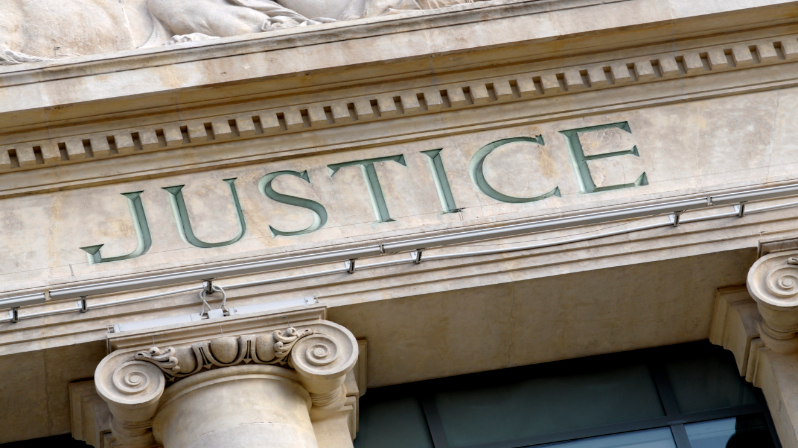District Council – That Helps You Fight Misdemeanor Charges In Texas
Misdemeanor In Texas: What Is A Misdemeanor & How To Fight It
Protect Yourself With A Dallas Misdemeanor Attorney
Misdemeanor offenses are criminal charges that are less serious than felony charges. If you’ve been accused of a misdemeanor crime in Dallas, you need an experienced criminal defense attorney on your side. A Dallas misdemeanor crime attorney can help protect your rights.
They can help ensure that the evidence against you is weak or nonexistent. An experienced lawyer can also negotiate with the prosecutor on your behalf, ensuring that the best possible outcome for you is achieved.

Types Of Misdemeanor In Texas
In Texas, there are three classes of misdemeanor charges- Class A, Class B, and Class C. Each class has different punishments associated with it.
Class A Misdemeanor
Class A misdemeanors are the most serious type of misdemeanor. They are punishable by up to one year in jail and a maximum fine of $4,000. In Texas, Class A misdemeanors include assault, theft, and prostitution offenses. Because these crimes are so serious, it can be difficult to have them dropped or expunged from your criminal record. You need an experienced attorney on your side if you want any chance at achieving this goal.
Class B Misdemeanor
Class B misdemeanors are less serious criminal offenses in Texas, but they can still result in jail time and other significant penalties. If you are charged with a Class B misdemeanor, it is important to get help from a qualified Dallas criminal defense lawyer who can try to get the best possible outcome for your case.
The punishment for a Class B misdemeanor includes jail time of up to 180 days and a fine of up to $2,000. These offenses can also lead to second offense charges and enhanced felony charges, so it is important to take them seriously.
Class C Misdemeanor
And finally, Class C Misdemeanors are the most minor offenses in the state of Texas. Most traffic violations, such as speeding tickets, fall into this category, but parking tickets do not. Drug paraphernalia possession can lead to a Class C Misdemeanor charge and disorderly conduct can be punishable by a fine of up to $500 or jail time. Theft of property worth less than $50 is a punishable offense with a maximum fine of $500 and no jail time typically associated with it.
Misdemeanor crimes in Texas can carry serious repercussions, including jail time, fines, and a criminal record. It is important to understand these laws and how they may apply to your case. Working with an experienced lawyer can help you navigate the complicated legal system and protect your rights. A misdemeanor attorney can provide you with the legal representation that you need and help to minimize any penalties that you may face.
If you have been charged with a misdemeanor in Texas, contact an experienced criminal defense lawyer right away.
Things That May Affect Sentencing For A Misdemeanor Conviction
The court will consider certain factors when deciding how to sentence someone convicted of a misdemeanor, including whether they are a repeat offender, whether the criminal crime was motivated by bias or prejudice (e.g., based on race, religion, etc.), and whether illegal or legal drugs were involved.
There are a number of special sentencing considerations that judges must take into account when handing down punishment.
If drugs or “controlled substances” were used in the commission of a crime, the offender will be sentenced to 180 days with at least four months of time served if it is their first offense.
Motivated by bias or prejudice, Class A misdemeanor charges will carry a sentence of mandatory 180 days at a minimum. For example, hate crimes and assault charges can fall into this category.
The courts consider a variety of factors when handing down a punishment for misdemeanors. Some factors that are taken into account include the defendant’s history, whether they are a first offender, if they were an accomplice or main offender, and what kind of stress or duress the defendant was under at the time of the crime.
Judges have a great deal of discretion when it comes to sentencing, and they will take all of these factors into account when making their decision.
How Does A Misdemeanor Conviction Affect Your Rights?
Right To Bear Arms
If you are accused of a Class A or B misdemeanor, your License to Carry (LTC) will be automatically suspended. If you are convicted or plead your case down through deferred adjudication or deferred disposition, your LTC will be revoked for 5 full years. If either you’re formally acquitted of your charges or they were dropped by the prosecutor, your LTC will be automatically restored
Right To Drive
In Texas, if you have an outstanding ticket for a Class C Misdemeanor (like speeding), and that ticket goes unpaid, the state can suspend your driver’s license. If you are caught driving on a suspended license, you can be charged with a minimum Class C Misdemeanor, which is punishable by a fine of up to $2,000 and/or jail time of up to 180 days.
Visitation Rights
There are a variety of misdemeanor offenses, and some can have a significant impact on your visitation rights. Some common misdemeanors that can impact visitation rights include Assault, DWI, Drug Possession, and Public Intoxication.
If you have been arrested and accused of any of these crimes, it is important to contact an experienced lawyer right away. The Medlin Law Firm has years of experience fighting for the rights of its clients. Gary Medlin or any of the other equally-competent attorneys will work hand-in-hand with you to ensure your case is handled properly and that your rights are protected.
Possibility Of Expunction Of Criminal Records
Misdemeanor offenses in Texas, as already mentioned, can be either Class A, B, or C. The severity of the misdemeanor will determine the punishment and possible criminal record.
If a person is arrested for a Class C misdemeanor, they may have their criminal record expunged if certain conditions are met. These conditions include waiting 180 days or one year from the date of arrest (whichever is shorter), not being convicted of any other crime, and completing any court-mandated programs. If a person is successful in meeting all these conditions, they may file to have their criminal record expunged.
FAQs On Misdemeanor
When potential employers go and complete a background check, will this show up?
The answer to this question is no. Background checks, while they may show up on an employer’s end, are not automatically included in a potential employee’s background check.
- What is the difference between a misdemeanor and a felony?
A misdemeanor is a less serious crime than a felony, which means that the person convicted of a misdemeanor may be sentenced to fewer years in prison than someone convicted of a felony. However, both misdemeanors and felonies are punishable by time in prison.
- How do I get a nondisclosure or expunction?
An expunction is a process by which an individual has their criminal record erased. A nondisclosure is a legal document that says that the plaintiff’s arrest records will not be disclosed to anyone but the plaintiff and their attorneys.
- What are the ramifications of a guilty conviction at trial?
The repercussions of a guilty conviction at trial can not only include the legal ramifications, but also financial implications. A criminal record is often attached to a person’s name and will follow them for life.
- Can you go to jail for a misdemeanor in Texas?
Yes, you can go to jail for a misdemeanor in Texas.
- What is the lowest misdemeanor?
The lowest misdemeanor is a non-jailable offense in the United States. The most common offenses for this are minor traffic violations.
Don’t Lose Your Rights Because Of A Misdemeanor
A misdemeanor is a criminal offense that can very possibly affect your life and your Constitutionally-granted rights. If you are accused of a misdemeanor, it is important to take the situation seriously and seek legal help.
You might think that a misdemeanor has minor consequences and does not warrant hiring a defense attorney. You couldn’t be more wrong. Without an attorney, you will need to depend on a court-appointed attorney or navigate the court system by yourself.
However, getting a public defender requires certain conditions to be met for you to qualify. If you don’t qualify, you’ll need to hire a misdemeanor attorney.
An experienced attorney can protect your rights and help you navigate the criminal justice system. You could have a chance of getting the charge completely thrown out or the sentence reduced. The Medlin Law Firm has helped many people in Dallas and throughout Texas fight misdemeanor charges.
If you have been charged with a misdemeanor, you might be wondering what the worst-case scenario is. What are the consequences? How can you fight back and win? The first thing to do is talk to a lawyer. The Medlin Law Firm has over 80 years of experience helping people fight misdemeanor charges in Dallas County and the rest of Texas.
Misdemeanor – Highly Rated Legal Defense At AVVO
(682) 204-4066 We cannot receive pictures via text so please send those via email or hand deliver to our office.
(682) 204-4066 No podemos recibir imágenes por mensaje de texto, así que envíelas por correo electrónico o entréguelas personalmente en nuestra oficina.







